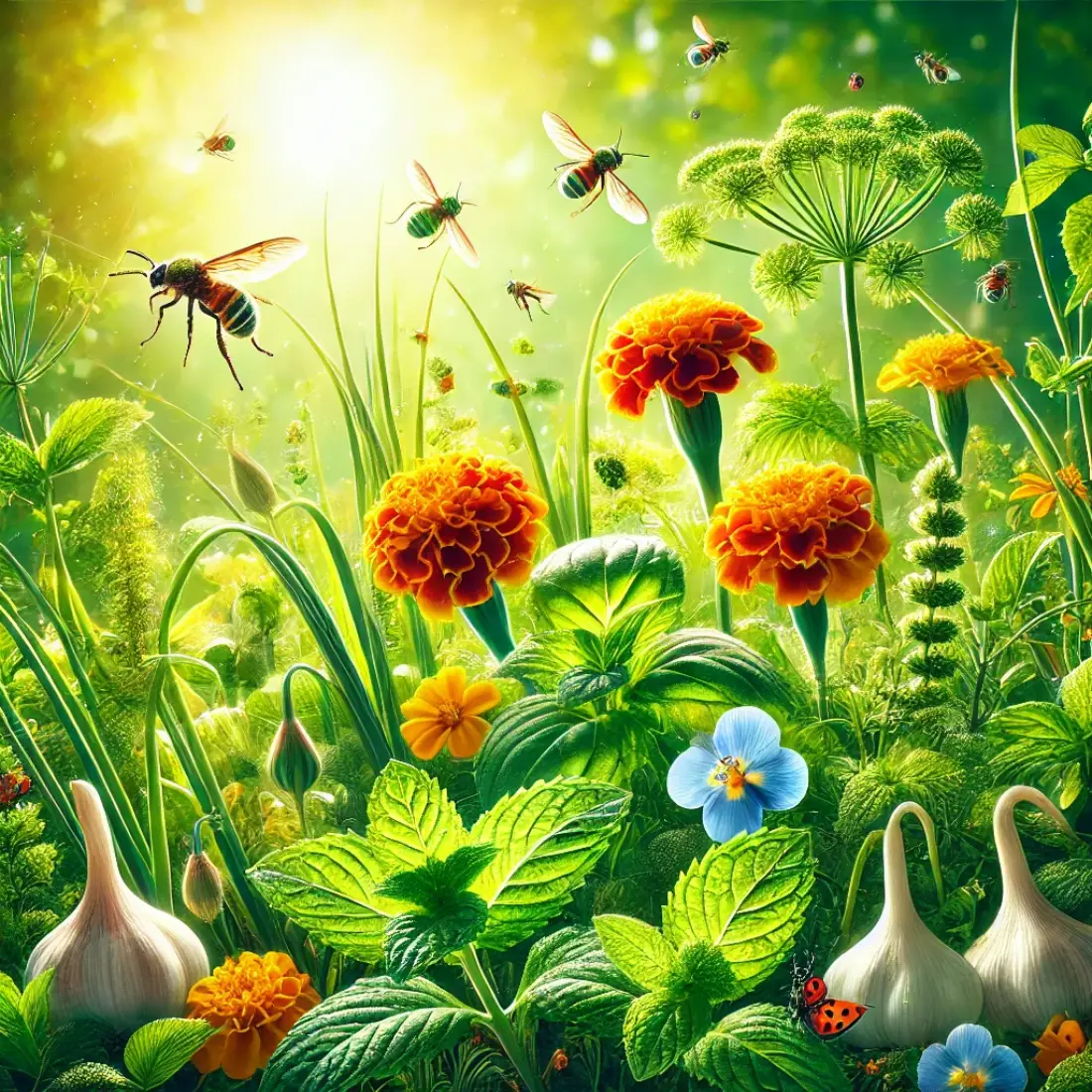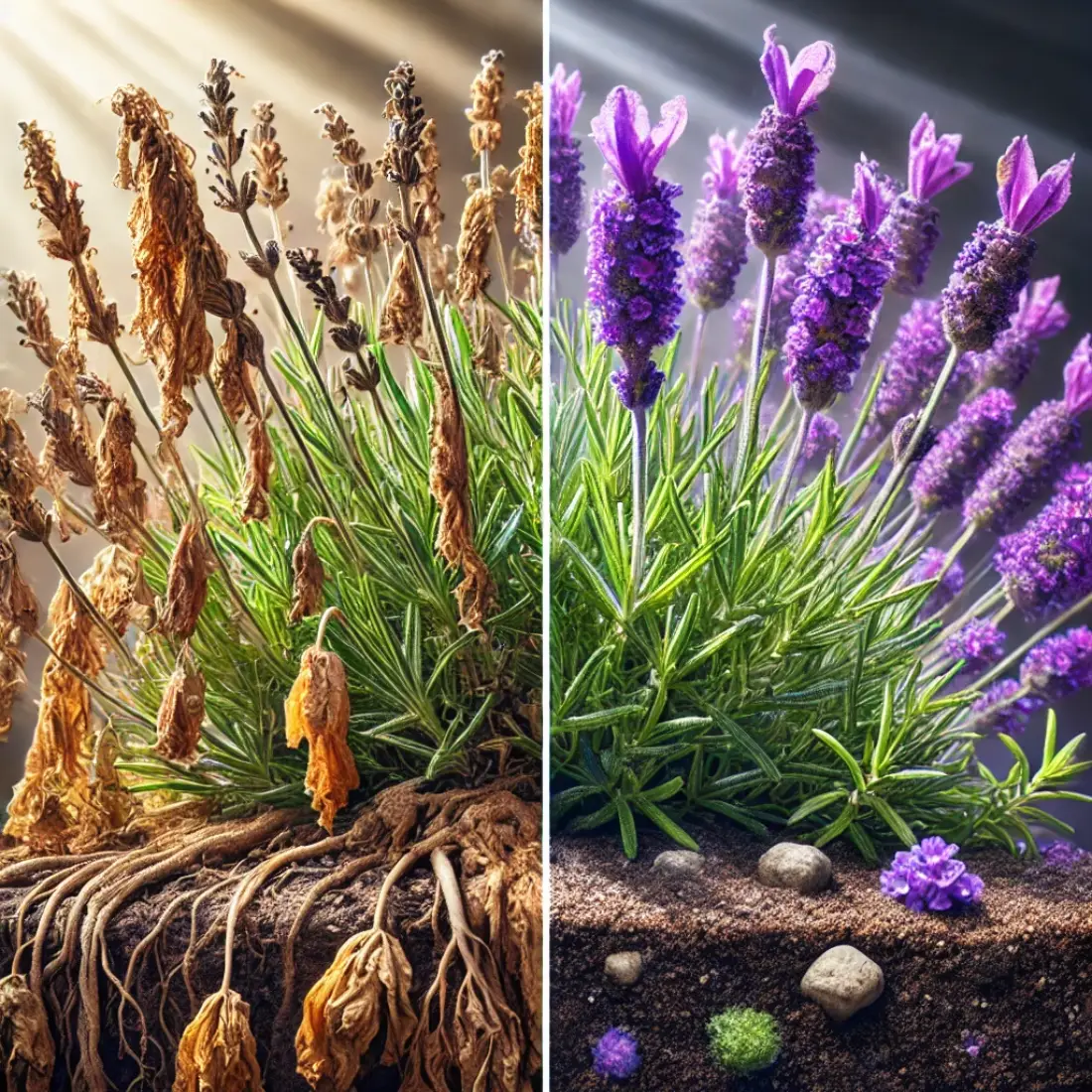Welcoming plants into your living spaces does more than beautify your home; it fortifies your defenses against unwelcome insect visitors. Beyond their aesthetic appeal, certain plants are nature’s way of offering a protective barrier against a variety of pests.
Delve into the world of botanical guardians with this comprehensive guide to the top 10 plants known for their insect-repelling powers.
- Lavender: Not just for relaxation; its oil repels moths, mosquitoes, and flies.
- Basil: A culinary favorite that also keeps mosquitoes and houseflies at bay.
- Mint: Refreshing and potent against spiders and mosquitoes.
- Rosemary: A herb that mosquitoes find particularly off-putting.
- Citronella Grass: The cornerstone of mosquito repellency.
- Marigolds: Beautiful and battle-ready against aphids and mosquitoes.
- Chrysanthemums: Decorative and a natural insecticide for ants, ticks, and fleas.
- Petunias: Colorful, cheerful, and a nemesis to aphids and tomato hornworms.
- Lemongrass: Citral-rich and unwelcoming to mosquitoes.
- Catnip: More effective than DEET at repelling mosquito
10 Houseplants for a Bug-Free Home
Lavender
Lavender’s soothing scent is a nightmare for mosquitoes, moths, and flies. Thriving in sunny spots, this plant requires well-draining soil and moderate watering. Its purple blooms not only add a splash of color but also a layer of protection against flying pests.
Basil
A staple in the kitchen, basil’s strong scent wards off mosquitoes and houseflies. It prefers moist, well-drained soil and plenty of sun. Regular pruning encourages fuller growth, ensuring you have plenty of this aromatic herb to both use in dishes and deter pests.
Mint
Mint’s invigorating scent is unappealing to spiders and mosquitoes. However, it’s a vigorous grower, so potting it is advisable to prevent it from overtaking your garden. It enjoys moist soil and partial to full sun, making it a low-maintenance addition to your pest-repelling plant collection.
Rosemary
The strong aroma of rosemary is particularly effective against mosquitoes. This herb thrives in full sun and well-drained soil, requiring minimal water once established. Its needle-like leaves and woody scent make it a hardy addition to both your garden and your insect-repelling arsenal.
Citronella Grass
The poster child for natural mosquito repellency, citronella grass is best grown in large planters due to its size. It requires well-drained soil, ample sunlight, and regular watering to flourish. The plant’s oils are most effective when the leaves are crushed and released into the air, serving as a living insect repellent.
Marigolds
These bright and cheerful flowers are not just a visual delight but also a warrior in disguise, thanks to pyrethrum, an ingredient used in many insect repellents. Marigolds thrive in full sun and well-drained soil, repelling aphids and mosquitoes naturally. Deadhead regularly to promote continuous blooming and maximize their repellent effect.
Chrysanthemums
Chrysanthemums, or mums, contain pyrethrin, a natural insecticide effective against roaches, ants, ticks, and fleas. They require well-drained soil, consistent moisture, and full sun to partial shade. Incorporating these into your garden not only adds a splash of color but also forms a protective barrier against a variety of pests.
Petunias
Petunias are a low-maintenance solution to keeping aphids, tomato hornworms, and other pests at bay. They prefer full to partial sun and well-draining soil. Regular watering and deadheading will keep them blooming and working as a natural pest deterrent all season long.
Lemongrass
Renowned for its high citral content, lemongrass is a potent mosquito repellent. It thrives in full sun and well-drained soil, requiring consistent moisture. Plant lemongrass in pots or the ground to create a protective perimeter around your outdoor living spaces.
Catnip
Surprisingly, catnip is more effective than DEET in repelling mosquitoes, thanks to its nepetalactone content. This easy-to-grow plant prefers well-drained soil and full sun to partial shade. Besides its repellent properties, catnip can also provide entertainment for your feline friends.
Embracing these plants offers a natural, decorative way to enhance your home’s defenses against insects. From the soothing scents of lavender and rosemary to the vibrant blooms of marigolds and petunias, each plant brings its unique aesthetic and functional benefits to your living spaces. Start integrating these natural repellents into your home and garden today for a more peaceful, pest-free environment.
FAQs on Houseplants for a Bug-Free Home
Which of these plants is the most effective against mosquitoes?
Citronella, catnip, and lavender are among the most effective, each utilizing different compounds to repel mosquitoes.
Can I grow these plants in any climate?
While some plants may be more suited to certain climates, many can be grown indoors or in pots to accommodate different environmental conditions.
How quickly do insect-repelling plants begin to work?
These plants start repelling insects as soon as they begin to grow and emit their natural oils, with full effectiveness as they mature.
Are these plants safe for pets?
Most are safe, but it’s crucial to research each plant as some, like certain varieties of chrysanthemums, can be toxic to pets.
How can I use these plants around my home for the best insect-repelling effect?
Positioning plants at entry points, windows, and around leisure areas can maximize their repellent effect.
Do insect-repelling plants require special care?
They generally require the same care as other plants of their kind, with specific needs for sunlight, water, and soil type.
Can I use these plants in conjunction with other insect-repelling methods?
Yes, these plants can complement other eco-friendly pest control measures for a more comprehensive approach.
How do I harvest and use the repellent oils from these plants?
You can create DIY repellents by extracting oils through simple processes like infusing plant leaves in oils or alcohol.
Will these plants repel all types of insects?
While effective against many pests, no plant is a universal deterrent, so combining different plants is beneficial.
Can these plants help repel insects indoors as well?
Absolutely. Keeping potted plants indoors can help deter indoor pests.









